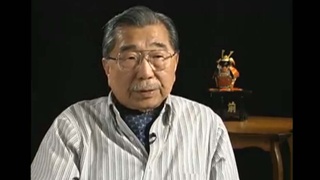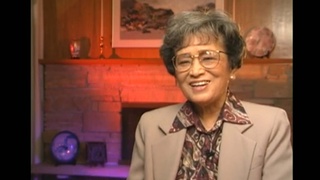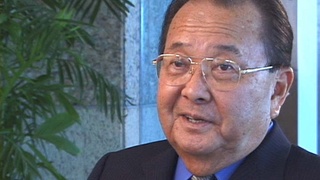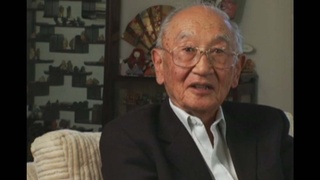Interviews
Poignant story from the CWRIC hearing in San Francisco
The most impressive part was the group of Issei women that was brought here by bus to testify. They all spoke in Japanese, but they told about their personal story—what happened to them. And I still recall one story to this day. It’s still vivid in my mind.
She said that the FBI came to take her husband away. He was out in the field still working. They waited for him to come home and they would not even let him have his supper or change his clothing. They took him directly, and she didn’t even know where he was and it took almost two days to find him. It turns out that he was incarcerated in local jail in San Jose. So, she went over there, and the guard said, you cannot speak Japanese, you have to speak only English. Her English was not very good, she said, and her kids, she brought her two kids with her. But they were too young to do the interpreting, so, mostly through sign language, the husband finally convinced her that what he wanted was a change of clothing. So, she said she went home, got them. He was still in his boots at the time. So she brought the change of clothing back to the jail, but when she got there, he was gone. She said that she did not know where he was for a long time. Finally, he was in one of the internment camps, I think he was in Missoula, Montana, someplace in that area. But it was many, many months later that she found out where he was.
Date: July 1-2, 1998
Location: California, US
Interviewer: Mitchell Maki, Darcie Iki
Contributed by: Watase Media Arts Center, Japanese American National Museum
Explore More Videos

Sneaking out of the Hastings Park camp during World War II
(b. 1928) Doctor. Former Chair of the Japanese Canadian Redress Foundation.

A Dutiful Son
(1918-2012) Fought the constitutionality of Executive Order 9066.


Erasing the Bitterness
(1923–2008) One of the leaders behind the redress movement.


Loyalty questionnaire
(1916-2010) draft resister, helped form the Heart Mountain Fair Play Committee

Speaking out in camp
(1916-2010) draft resister, helped form the Heart Mountain Fair Play Committee

Resisting transfer from Jerome
(1919 - 2006) World War II and Korean War veteran

A visit to Jerome after OCS
(1919 - 2006) World War II and Korean War veteran

“Everybody went in like sheep”
(1913-2013) Doctor specializing in obstetrics in Southern California

Parents expected to be taken by the FBI
(1919-2020) Member of the 1800th Engineering Battalion. Promoted Japan-U.S. trade while working for Honda's export division.

Going to camp with the Terminal Island people
(1927-2010) Political Activist


Interned at age fifteen, I saw camp as an adventure
(1927-2010) Political Activist

